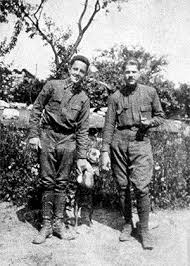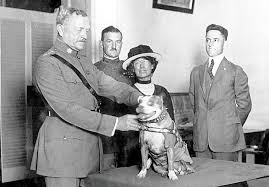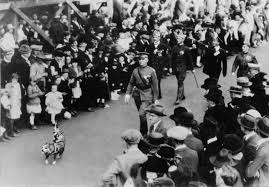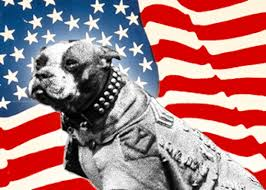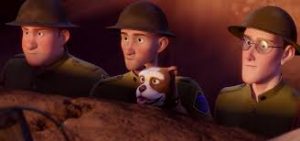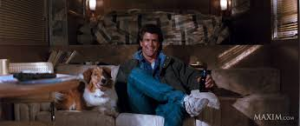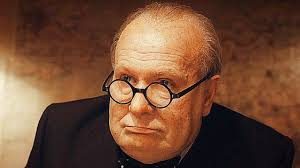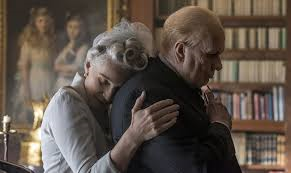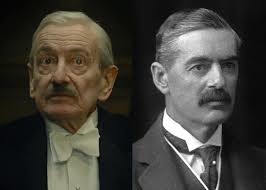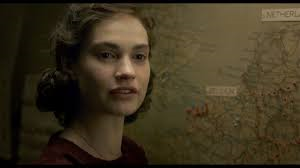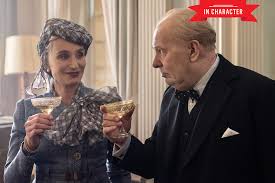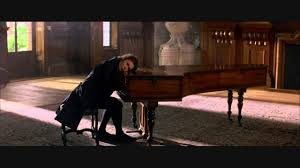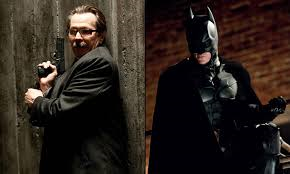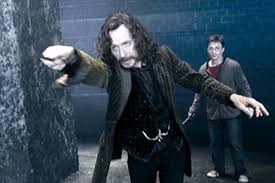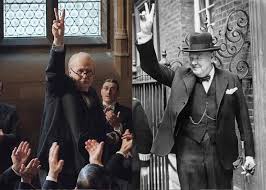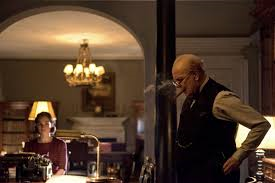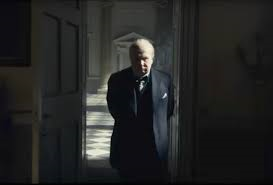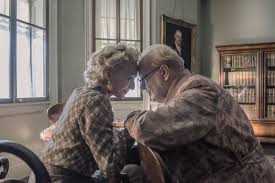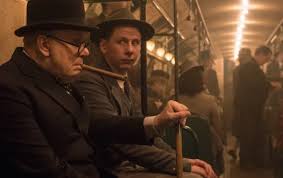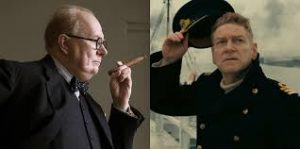SHORT TAKE:
Sgt. Stubby: An American Hero is a wonderful animated history of American Sgt. Stubby, a small mixed pitbull, the only dog to achieve rank and combat advancement, who followed his master’s Yankee Division regiment into the desperately dangerous front line trenches of World War I France.
WHO CAN GO:
With rare unequivocalness, I can recommend this movie for EVERYONE of any age.
LONG TAKE:
Years ago my brother, Bill, and I watched Lethal Weapon 2 on TV. There was a scene where Gibson as Martin Riggs, his dog Sam and Riggs' girlfriend du jour were under attack – helicopters, guns, lots of shooting. Bill turned to me and knowing what my primary concern would be said, "Don’t worry the dog survives." So rest assured to any parents concerned about bringing their small children to a movie about a cute dog on the front lines in World War I trenches, I have no compunction about a spoiler to let you know Sgt. Stubby is VERY child friendly.
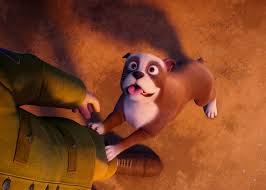 Directed by Richard Lanni, in his first non-documentary feature film, and written by Lanni and Mike Stokey, the latter a combat vet and experienced film consultant on everything military, Sgt. Stubby is a mostly historically accurate telling of a stray miniature pit bull mix who attached himself to the
Directed by Richard Lanni, in his first non-documentary feature film, and written by Lanni and Mike Stokey, the latter a combat vet and experienced film consultant on everything military, Sgt. Stubby is a mostly historically accurate telling of a stray miniature pit bull mix who attached himself to the 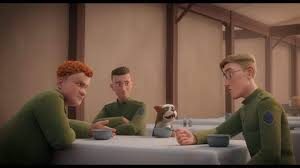 102nd Infantry Regiment Yankee Division, especially one
102nd Infantry Regiment Yankee Division, especially one  Private Robert Conroy. Conroy is voiced by Logan Lerman, known for
Private Robert Conroy. Conroy is voiced by Logan Lerman, known for 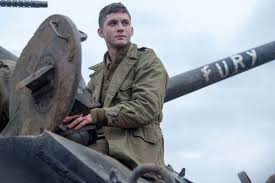 Fury, the
Fury, the 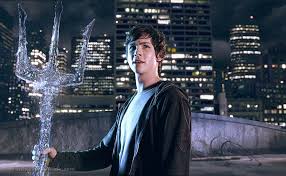 Percy Jackson movies,
Percy Jackson movies, 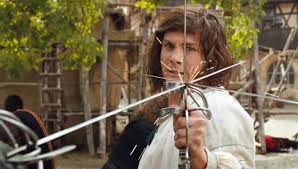 2011's steam-punk version of The Three Musketeers, and
2011's steam-punk version of The Three Musketeers, and 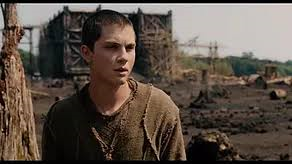 the most recent (and vastly underappreciated) Noah. (As a side note see
the most recent (and vastly underappreciated) Noah. (As a side note see 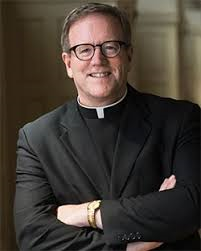 Word on Fire’s Bishop Barron’s review of Noah before coming down too hard on Noah.)
Word on Fire’s Bishop Barron’s review of Noah before coming down too hard on Noah.)
In a delightful surprising supporting role, the amazing French actor, Gerard Depardieu brings Gaston Baptiste to life. Depardieu, with over 233 credits to his name is, to my mind, of note for the best 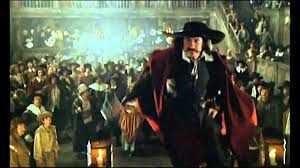 Cyrano de Bergerac (short of the updated romantic comedy by Steve Martin, Roxanne),
Cyrano de Bergerac (short of the updated romantic comedy by Steve Martin, Roxanne), 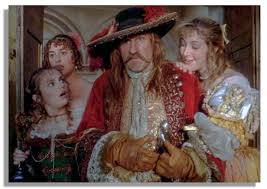 the funniest Porthos from 1998's Man in the Iron Mask, and
the funniest Porthos from 1998's Man in the Iron Mask, and 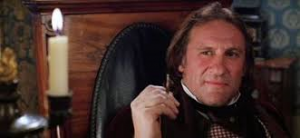 the almost unique appearance of the character Reynaldo in Branagh’s unabridged Hamlet. Depardieu, leading man in both French and American movies, accomplished winemaker and restauranteur, has appeared mostly in historical dramas and romantic comedies.
the almost unique appearance of the character Reynaldo in Branagh’s unabridged Hamlet. Depardieu, leading man in both French and American movies, accomplished winemaker and restauranteur, has appeared mostly in historical dramas and romantic comedies. 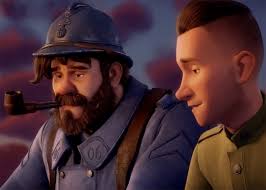 Baptiste, drawn to loosely look like Mr. Depardieu, is a large gentle giant of a veteran Frenchman who, in his civilian life, is a chef and takes Conroy, Stubby and Conroy’s closest human friends under his wing to help them survive in the trenches.
Baptiste, drawn to loosely look like Mr. Depardieu, is a large gentle giant of a veteran Frenchman who, in his civilian life, is a chef and takes Conroy, Stubby and Conroy’s closest human friends under his wing to help them survive in the trenches.
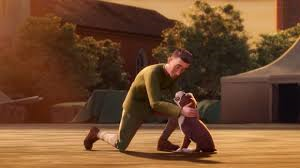 Stubby became the mascot of the Yankee Division, wandering onto the grounds of Yale University in New Haven, Connecticut where the troops were training. Stubby ended up going with the men to the front lines in France for 18 months – in the trenches, raising morale, chasing out vermin, locating the injured, alerting the men to incoming bombs and impending gas clouds, and warning of approaching Germans. He was the most decorated dog in World War I and the only dog to ever achieve rank and then a combat promotion which he won for heroics during battle, including receiving a war wound.
Stubby became the mascot of the Yankee Division, wandering onto the grounds of Yale University in New Haven, Connecticut where the troops were training. Stubby ended up going with the men to the front lines in France for 18 months – in the trenches, raising morale, chasing out vermin, locating the injured, alerting the men to incoming bombs and impending gas clouds, and warning of approaching Germans. He was the most decorated dog in World War I and the only dog to ever achieve rank and then a combat promotion which he won for heroics during battle, including receiving a war wound.
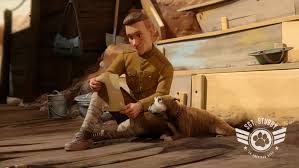 Sgt Stubby is told through the medium of letters written home to Conroy’s sister Margaret, voiced by Helen Bonham Carter. Carter is best known for her scary roles including
Sgt Stubby is told through the medium of letters written home to Conroy’s sister Margaret, voiced by Helen Bonham Carter. Carter is best known for her scary roles including 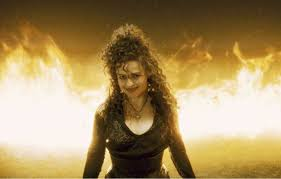 Bellatrix Lestrange in the Harry Potter franchise,
Bellatrix Lestrange in the Harry Potter franchise, 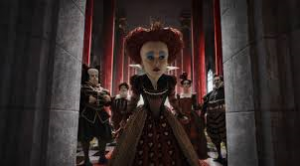 the Red Queen in 2010's Alice in Wonderland, and
the Red Queen in 2010's Alice in Wonderland, and 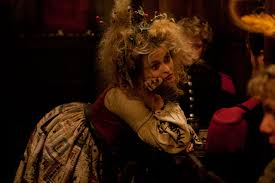 Madam Thenardier from Les Mis. She is not quite as well known for some truly lovely and far gentler roles, such as
Madam Thenardier from Les Mis. She is not quite as well known for some truly lovely and far gentler roles, such as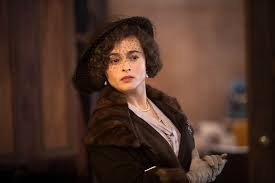 the devoted wife of George VI in The King’s Speech. Her narration as Margaret in Sgt. Stubby ranks with her performance as Queen Elizabeth.
the devoted wife of George VI in The King’s Speech. Her narration as Margaret in Sgt. Stubby ranks with her performance as Queen Elizabeth.
Sgt. Stubby reminded me of the old Disney and Warner Brothers animated shorts made during World War II promoting patriotism, explaining rationing, and cautioning against "loose lips". It was delightful to see that kind of straight forward common sense view of America and her allies against a common enemy AND with all the benefits of beautiful modern animation, all structured by the genuinely amazing events of this little dog.


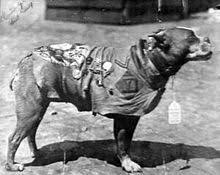 From what I have read there were SOME historical liberties taken – for example Stubby does not manage to get onto the ship alone through sheer will and determination to find his master, but was smuggled onto the ship by Conroy. However, MOST of the other notable adventures really occurred – of which I hesitate to mention for fear of spoilers and ruining some surprises.
From what I have read there were SOME historical liberties taken – for example Stubby does not manage to get onto the ship alone through sheer will and determination to find his master, but was smuggled onto the ship by Conroy. However, MOST of the other notable adventures really occurred – of which I hesitate to mention for fear of spoilers and ruining some surprises.
 This is a VERY VERY child friendly movie. Even the battle injuries sustained by the soldiers are "shown" through mild reactions of other soldiers, or occur off screen or simply are just not shown but spoken of as one might during a stage play without actually showing any blood or wound.
This is a VERY VERY child friendly movie. Even the battle injuries sustained by the soldiers are "shown" through mild reactions of other soldiers, or occur off screen or simply are just not shown but spoken of as one might during a stage play without actually showing any blood or wound. 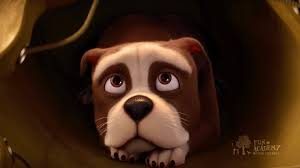 My two year old grandson, who ADORES dogs and is especially fond of our American Staffordshire mix, was not upset by any of the proceedings. During suspenseful moments he occasionally spoke a word of encouragement to Stubby but was otherwise transfixed. Two ten year old little girls who came with us and all the moms found the movie equally enjoyable. My ten year old "co-reviewers" both gave Stubby a definite "two thumbs up".
My two year old grandson, who ADORES dogs and is especially fond of our American Staffordshire mix, was not upset by any of the proceedings. During suspenseful moments he occasionally spoke a word of encouragement to Stubby but was otherwise transfixed. Two ten year old little girls who came with us and all the moms found the movie equally enjoyable. My ten year old "co-reviewers" both gave Stubby a definite "two thumbs up".
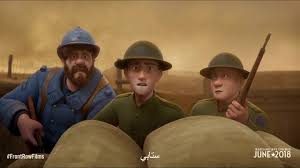 One of the other moms noted to me that, not only was Stubby a good and wholesomely entertaining movie, but it was genuinely educational. Maps of France, the trenches, the battle front lines, the advances and retreats were clearly drawn and animated, making it quite easy to follow the progress of the war. Details of uniforms and weaponry, the barbed wire, insignia on the bombs, movement of weaponry and conditions of the trenches seemed to be very carefully considered.
One of the other moms noted to me that, not only was Stubby a good and wholesomely entertaining movie, but it was genuinely educational. Maps of France, the trenches, the battle front lines, the advances and retreats were clearly drawn and animated, making it quite easy to follow the progress of the war. Details of uniforms and weaponry, the barbed wire, insignia on the bombs, movement of weaponry and conditions of the trenches seemed to be very carefully considered.
So I’d say – bring your dog obsessed two year old, bring grandma whose grandfather might have fought at Chemin des Dames, bring your older teen majoring in history at college, bring a girl on a first date, bring your friends to watch a feel good patriotic movie about the true exploits of brave American and French soldiers – both two and four footed, who fought selflessly to protect their countries and each other.